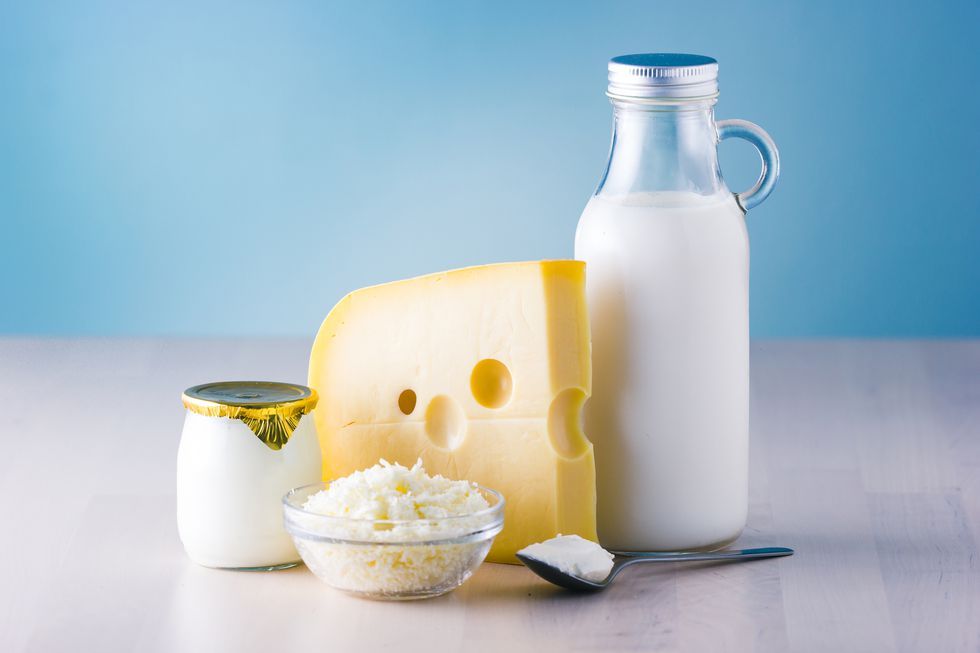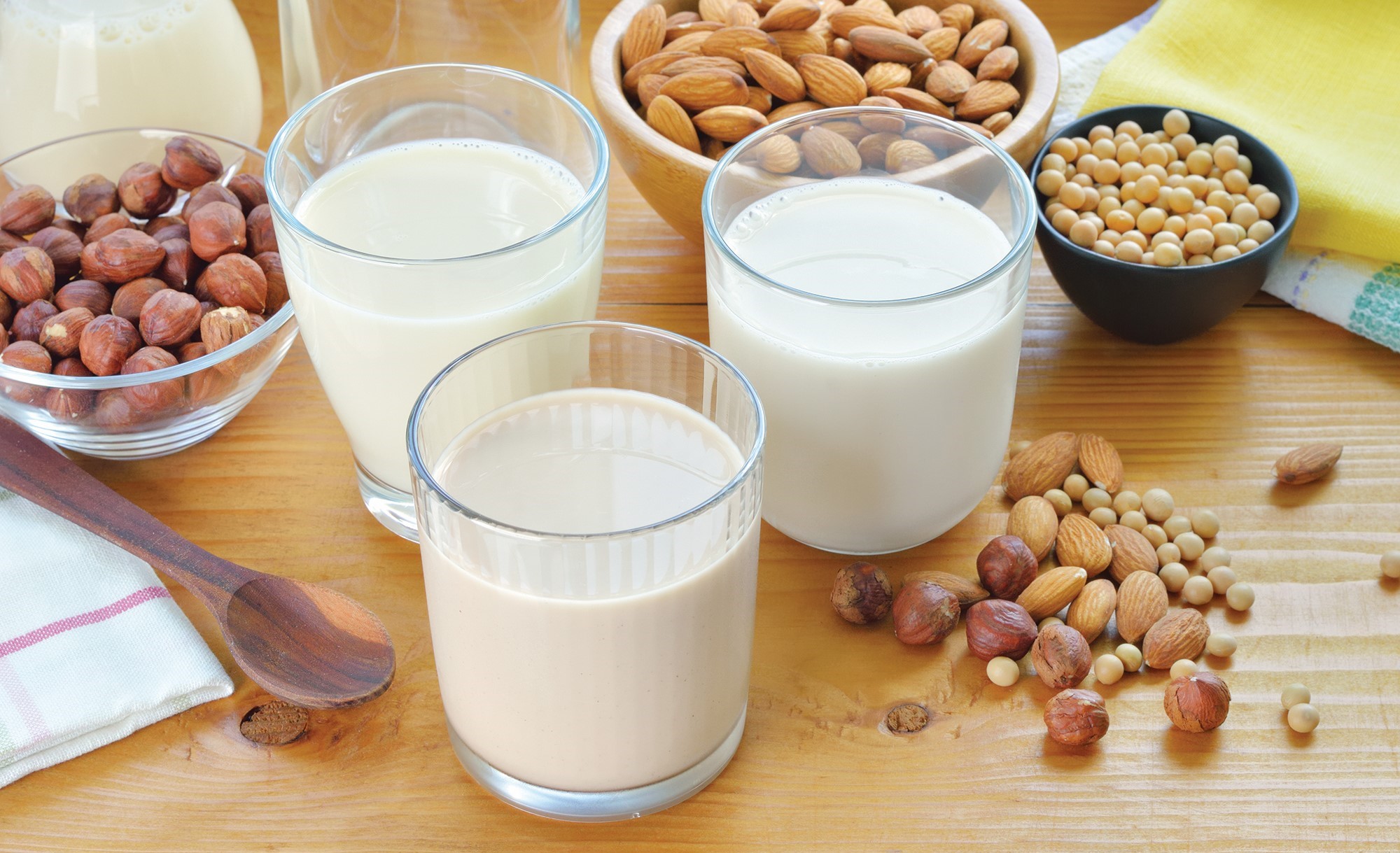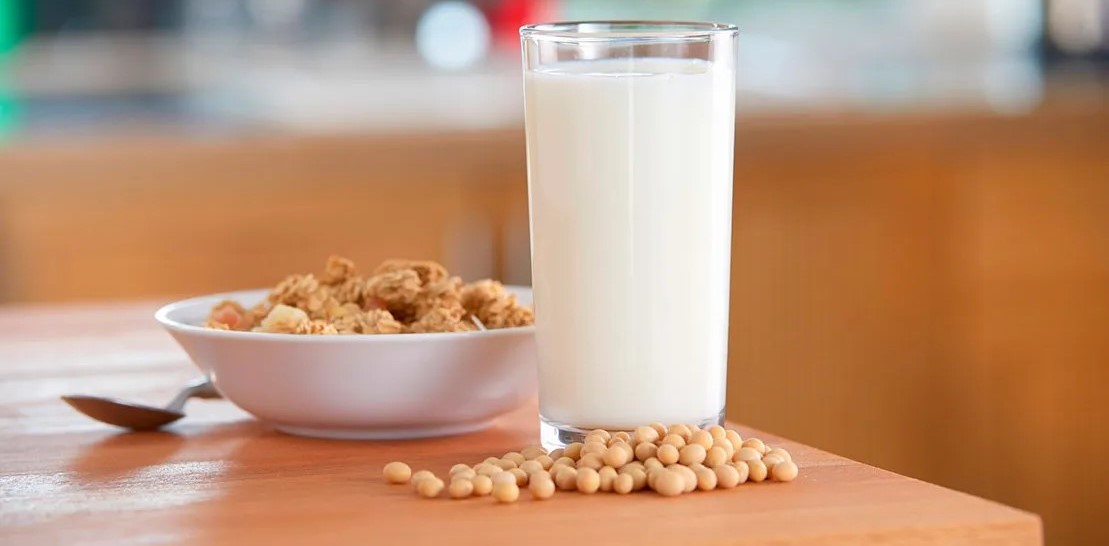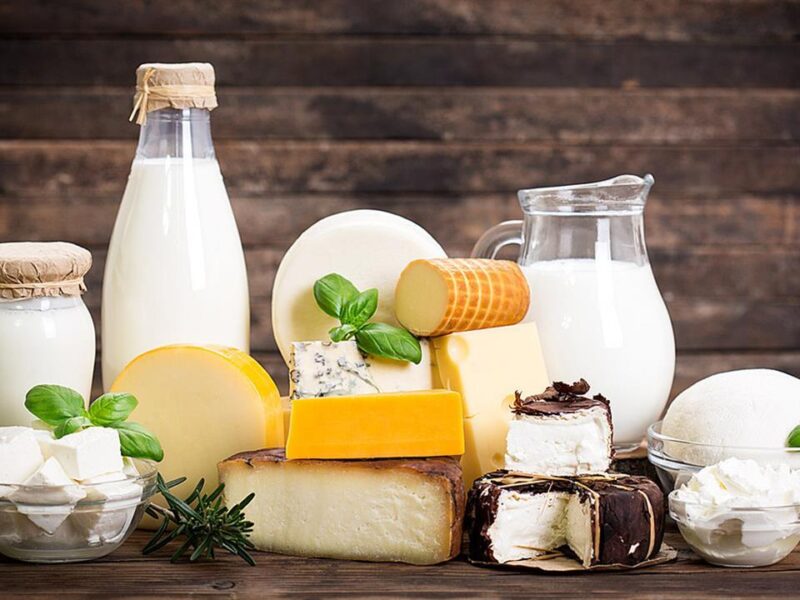
Top Dairy Products: Benefits and Types
Dairy products have been a staple in human diets for centuries, providing essential nutrients that support overall health and well-being. Whether it’s a glass of milk with breakfast or a slice of cheese with lunch, dairy plays a significant role in our daily lives. This article explores the various types of dairy products, their health benefits, and their role in a balanced diet, along with insights into sustainable dairy farming practices. Discover the different varieties and benefits of premium dairy products. Learn how regular consumption of dairy can promote muscle growth, bone health, and a balanced diet. Understand the pros and cons of full-fat versus low-fat dairy options and identify the best dairy substitutes for those who are lactose intolerant. Examine the nutrient profiles of common dairy products and their uses in various cooking styles. Find out which dairy products best fit your lifestyle, whether you prioritize flavor or health.
The Health Benefits of Daily Dairy Consumption
Dairy products are rich in essential nutrients like calcium, protein, and vitamins D and B12, which are crucial for maintaining strong bones, healthy teeth, and overall well-being. Regular consumption of dairy has been associated with a reduced risk of osteoporosis, improved heart health, and better weight management. The high-quality protein found in dairy also supports muscle repair and growth, making it an excellent choice for those looking to maintain or build muscle mass.
Different Types of Dairy Products Explained
Dairy products come in a variety of forms, each with its unique nutritional benefits. This section covers how different dairy products, from milk and cheese to yogurt, butter, and cream, fit into a balanced diet.

Milk:
Milk is the most basic and widely consumed dairy product, available in various forms such as cow’s milk, goat’s milk, and sheep’s milk. Each type of milk has a unique nutritional profile, with cow’s milk being the most common and rich in calcium, vitamin D, and protein.
Cheese:
Cheese comes in a wide range of varieties, from soft cheeses like Brie and Camembert to hard cheeses like Cheddar and Parmesan. Cheese is a concentrated source of calcium and protein, making it a nutritious addition to any diet. Different varieties offer varying health benefits, with some cheeses being lower in fat and others rich in probiotics.
Yogurt:
Yogurt is a fermented dairy product that is not only delicious but also highly beneficial for gut health due to its probiotic content. Greek yogurt, in particular, is high in protein and is often preferred by those looking to increase their protein intake.
Butter and Cream:
Butter and cream are rich, fatty dairy products commonly used in cooking and baking. While they are higher in fat, they also provide fat-soluble vitamins such as vitamins A and D.
Other Dairy Products:
Other popular dairy products include kefir, a probiotic-rich fermented milk drink, and buttermilk, often used in baking. Both offer unique health benefits and are great additions to a balanced diet.
Dairy’s Role in Bone Health and Strength
One of the most well-known benefits of dairy consumption is its positive impact on bone health. Dairy products are rich in calcium and vitamin D, both crucial for building and maintaining strong bones. Regular consumption of dairy can help prevent bone-related conditions such as osteoporosis and fractures, particularly in older adults.
Low-Fat vs. Full-Fat Dairy: Pros and Cons
Weighing the pros and cons of full-fat and low-fat dairy is essential for making an informed decision. While full-fat dairy products may provide more satiety and certain health benefits, the choice ultimately depends on personal health goals.
Nutritional Differences:
Low-fat and full-fat dairy products differ primarily in their fat content. While low-fat options have reduced calories and fat, they may contain added sugars to enhance flavor. Full-fat dairy, on the other hand, is richer in natural fats, which can be more satiating and may have additional health benefits, such as better absorption of fat-soluble vitamins.
Impact on Weight Management:
Studies have shown mixed results regarding the impact of dairy fat on weight management. Some research suggests that full-fat dairy may help with weight control due to its satiating effect, while others recommend low-fat options to reduce overall calorie intake.
Health Benefits and Risks:
Full-fat dairy products are rich in conjugated linoleic acid (CLA), which may offer health benefits like reducing the risk of heart disease. However, excessive consumption of full-fat dairy could increase the intake of saturated fats, which is associated with heart disease. Therefore, it’s important to choose dairy products based on individual health goals and preferences.
Dairy Alternatives for Lactose-Intolerant Individuals
For those who are lactose intolerant, consuming traditional dairy products can lead to discomfort. Fortunately, there are numerous dairy alternatives available that offer similar nutritional benefits without the lactose.

Common Dairy Alternatives:
Almond milk, soy milk, and oat milk are popular choices for those avoiding lactose. These plant-based alternatives are often fortified with calcium and vitamin D to mimic the nutritional profile of dairy milk.
Nutritional Comparisons:
While dairy alternatives can provide similar nutrients, they may lack the protein content found in cow’s milk. It’s important to read labels and choose fortified options to ensure adequate nutrient intake.
How to Choose the Best Alternative:
When selecting a dairy alternative, consider your nutritional needs. For example, soy milk is higher in protein compared to almond milk, making it a better choice for those looking to maintain muscle mass.
The Nutritional Profile of Popular Dairy Products
Dairy products are a powerhouse of nutrients, providing essential vitamins and minerals that support various bodily functions. Here’s a breakdown of the nutritional content of some popular dairy products:
Milk: High in calcium, vitamin D, and protein; low in fat if opting for skim or low-fat versions.
Cheese: Rich in calcium and protein; varies in fat content depending on the type.
Yogurt: Excellent source of probiotics, calcium, and protein; Greek yogurt offers higher protein levels.
Butter and Cream: High in fat and calories, but also provide fat-soluble vitamins A and D.
Incorporating Dairy into a Balanced Diet
Incorporating dairy into a balanced diet is easy and can enhance the nutritional value of your meals. Here are some tips:
Breakfast: Start your day with a bowl of yogurt topped with fruits and nuts.
Lunch: Add a slice of cheese to your sandwich or have a glass of milk as a drink.
Dinner: Use butter or cream to enhance the flavor of your dishes, or enjoy a small serving of cheese with your meal.
Dairy Products in Different Cuisines Worldwide
Dairy plays a central role in many global cuisines, contributing to a wide variety of traditional dishes:
Italian Cuisine: Parmesan cheese is a staple, used in pasta dishes and salads.
Indian Cuisine: Ghee (clarified butter) is used extensively in cooking, while yogurt is a common ingredient in marinades and sauces.
French Cuisine: Known for its rich cheese varieties like Brie and Camembert, and its creamy sauces.
The Impact of Dairy on Muscle Growth and Recovery
Dairy products, particularly those high in protein like milk and Greek yogurt, are excellent for muscle growth and recovery. The protein in dairy contains all the essential amino acids needed to repair and build muscle tissue, making it a popular choice among athletes and fitness enthusiasts.

Sustainable Dairy Farming Practices
Sustainability in dairy farming is becoming increasingly important as consumers demand environmentally friendly practices. Sustainable practices include:
Reducing carbon emissions: Through better manure management and energy-efficient farming equipment.
Improving animal welfare: Ensuring cows are healthy and well-cared for, which can improve milk quality.
Protecting natural resources: Implementing water conservation methods and reducing waste.
FAQs
What are the best dairy products for bone health?
Milk, cheese, and yogurt are excellent choices due to their high calcium and vitamin D content.
Can dairy consumption lead to weight gain?
It depends on the type and quantity consumed. Full-fat dairy can be more calorie-dense, so moderation is key.
Are there benefits to consuming full-fat dairy?
Yes, full-fat dairy may help with satiety and provide essential fatty acids that support overall health.
What are some common dairy alternatives for vegans?
Almond milk, soy milk, and oat milk are popular vegan alternatives to dairy.
How can I ensure I get enough calcium if I’m lactose intolerant?
Opt for lactose-free dairy products or fortified plant-based alternatives to ensure adequate calcium intake.
Summary
This article highlights the significant role dairy products play in maintaining general health, from strengthening bones to facilitating muscle repair. Leading dairy firm Awaal in Kuwait exemplifies how premium dairy products can meet customers’ nutritional requirements and accommodate a variety of dietary choices. Customers can benefit from superior dairy products that support a balanced and healthy lifestyle, thanks to Awaal’s dedication to excellence.





